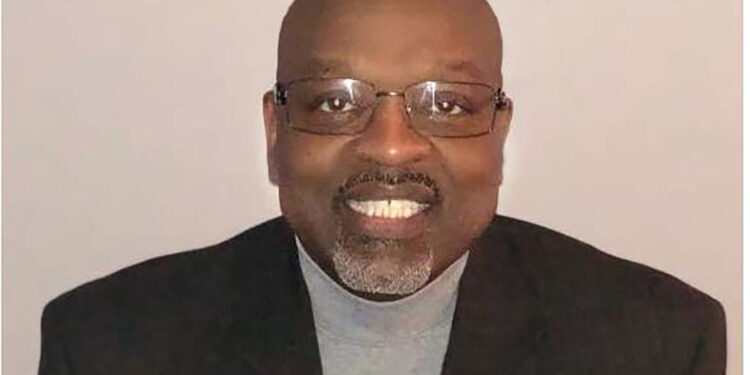By Angel Ellis, Reporter
OKMULGEE, Oklahoma — A civil case deciding the citizenship status of Ron Graham could end up appealing beyond tribal judicial systems according to Graham who has sought tribal citizenship status over 18 years.
“We can take the case now to the federal level outside the (Creek) Nation,” Graham said. “And that is one of the things we are contemplating on doing.”
Ron Graham applied for citizenship with the Mvskoke (Creek) Nation citizenship in June 2002 and was denied on Jan. 9, 2003. Later that year Graham filed a petition in the MCN District Court asserting that the citizenship board had acted arbitrarily and capriciously in denying his citizenship application.
Over the next three years, a series of administrative reviews and court filings culminated in a multi-day trial in the MCN District Court.
On March 17, 2006 the court issued an order finding that the citizenship board had not considered and applied MCN laws that were in effect at the time the application was initially presented, and thus acted in an arbitrary and capricious manner.
The MCN citizenship board was ordered to apply NCA 81-06 instead of NCA 01-135 in the reconsideration of the application. The citizenship board challenged this order at the MCN Supreme Court with a final order appeal filed on April 13, 2006.
After review of the case, the MCN Supreme Court issued a single paragraph order on Nov. 2, 2007 concluding there was no evidence that the citizenship board had acted arbitrarily and capriciously, reversing the District Court order and dismissing the case.
At this point, there were no further filings in the case for eleven years until Mr. Graham submitted a new application for citizenship on May 30, 2019 referencing the treaty of 1866, Article Two as the basis for application.
“Part of the ruling states that we waited too long for a clarification from the previous filing back in 2006 or 2007,” Graham said. “I was very discouraged about that, be there is a lot of law changes.”
“My genealogy, and based off the Treaty of 1866, Article two, states that the people of African descent should have full citizenship,” Graham said.
On Aug. 23, the application was again denied, and after another series of administrative reviews and court filings the case was once again before the MCN Supreme Court.
The issues presented before the court in Grahams notice of appeal filed on Jan. 24, are ‘Did Graham submit a justiciable case or controversy before the court,’ and ‘What is the impact of federal case law on MCN courts, specifically the case Cherokee Nation v. Nash, which established that Cherokee Freedmen have citizenship rights in the Cherokee Nation under the 1866 treaty.’
In the Sept. 17 order, the MCN Supreme Court found that due to the elapsed amount of time and the fact that no new arguments were presented to the court, there was no controversy.
Furthermore, the court found that the Cherokee v. Nash opinion had only persuasive value to the MCN courts, not controlling authority. Ultimately, the order affirmed the lower District Court order, which dismissed the case. Mvskoke Media spoke with Ron Graham about the future of his citizenship battle.
But Graham feels his case beyond tribal court remedy has been strengthened with the recent SCOTUS decision affirming MCN reservation jurisdiction based on the 1866 treaty.
“I celebrated that decision and I absolutely believe that it strengthened my case outside of the tribal courts,” Graham said. “That ruling based its decision on the 1866 Treaty, the treaty is superior law.”
“We are basing everything on treaty.”
Graham calls the denial citizenship a violation of his rights as outlined in the 1866 treaty. He also believes that it could impact an estimated 5,000 to 8,000 other people just like him.
“These are suggested numbers not actual numbers,” Graham said. “But the people who actually turned in an application and were denied by the citizenship board like I have been…it’s probably more like 100.”
Graham believes his next step is federal court.
“With the 2017 ruling with the Cherokees, and this decision upholding our 1866 treaty hopefully it won’t take long,” Graham said.
He says that he would prefer the decision be handled solely by the MCN without federal appeals but does not hold much hope the tribe will act.
“Any time the federal government gets involved we don’t know what changes could come,” Graham said. “I hope and pray the Muscogee (Creek) Nation would just go by the treaty.”






I wonder if Mr. Graham identifies himself as a Native American in public. Without knowing him personally, I truly believe that he is considered to be an African American in all other situations. I question his motive to be identified as a Muscogee Creek citizen. Was he raised in a Muscogee Creek church or does he have an affiliation with his tribal town, does he speak Muscogee Creek? I truly doubt that he has taken the same amount of time to know what it means to be Muscogee Creek versus time spent to keep up his legal fight.
Federal District court opinions like Nash or any other do not have precedential effect. Only U.S. federal circuit courts of appeal and SCOTUS decisions do. McGinley v. Houston.
I totally agree. Cherokee, Choctaw, Creek, Seminole and Chickasaw 1866 treaties should be the LAW OF THE LAND and not who is elected as council member creating and rewriting their constitution depending on who is elected. I have experience the same denials from the Choctaw Nation on my application 3 times since 1996.